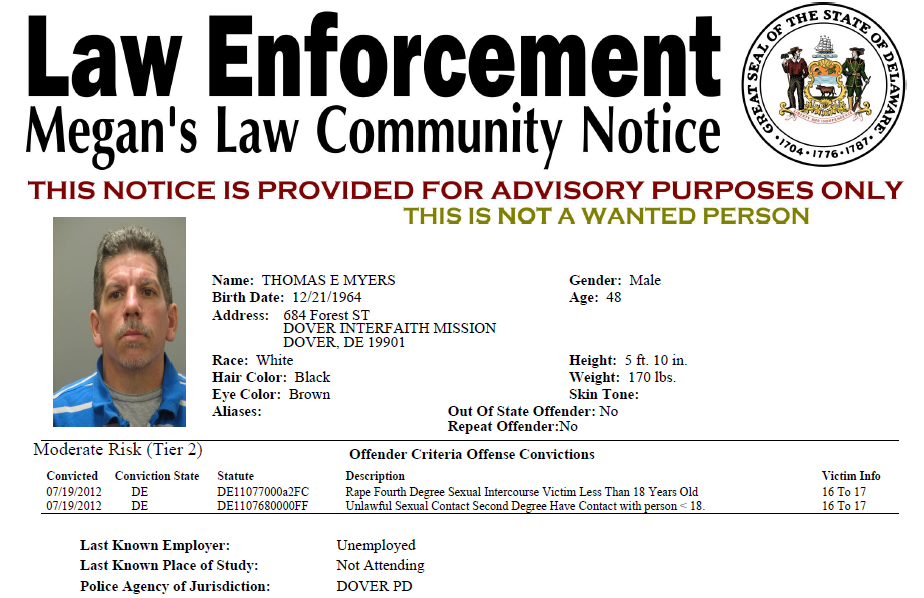Surprisingly, many landlords just aren’t suspicious of their clean cut applicants. While it is imperative to give every applicant the benefit of the doubt, it’s also impossible to ignore the possibility of someone trying to slip through undetected – usually by having the roommate/spouse submit the application to win over the landlord and then the other roommate/spouse moves in without ever being properly vetted.
As a general rule, all landlords should screen tenants for sexual predators, but they don’t despite how easy it is using professional research sites such as AmerUSA.com and numerous law enforcement portals nationwide thanks to a few very important laws such as, “Megan’s Law,” named after a girl who was murdered.
In 1996, her federal law was enacted by Congress to:
- Provide for the public dissemination of information from states’ sex offender registries.
- Provide that information collected under state registration programs could be disclosed for any purpose permitted under a state law.
- Require state and local law enforcement agencies to release relevant information necessary to protect the public about persons registered under a State registration program established under the Jacob Wetterling Crimes Against Children and Sexually Violent Offender Registration Act.
Surprisingly, some states restrict access to this information on a need to know basis – often to law enforcement and other officials. And some states even penalize landlords for acting on it when making tenancy decisions. Fortunately, this type of discrimination does not apply to tenants. So anyone looking for a safe area to rent should conduct their own search to prevent renting next to a convicted predator next door. Unfortunately, a sexual predator could always move in next door. That’s when living in a county that distributes some type of public notice, is a real plus.
While a landlord may not be able to get specific information – at the very least, a search for criminal records including a check of the national registry of sexual predators is easy to do. A landlord has a duty to perform his or her due diligence to ensure the prospective tenant’s background is known. Placing a previously convicted sexual predator without knowing could result in very serious consequences depending on the property’s location and neighboring tenants.
State Specific Megan’s Laws
For information on your state’s Megan’s Law and current restrictions on a landlord’s use of such information, contact your local law enforcement agency. To find out how to access your state’s sex offender registry, call the Parents for Megan’s Law (PFML) Hotline at 888-ASK-PFML.
Common Names and Incomplete Records
Unfortunately, criminal history is typically not searched by definitive information such as a social security number. So if your applicant has a name such as John Smith, you should be prepared for finding false positives even when trying to include date of birth. The last thing you want is to act upon erroneous information. If you’re unsure and need assistance, call AmerUSA at 800-399-9183 to order a proper search – they have the ability to send someone to physically search the local courthouse for a reasonable fee to confirm conviction.
